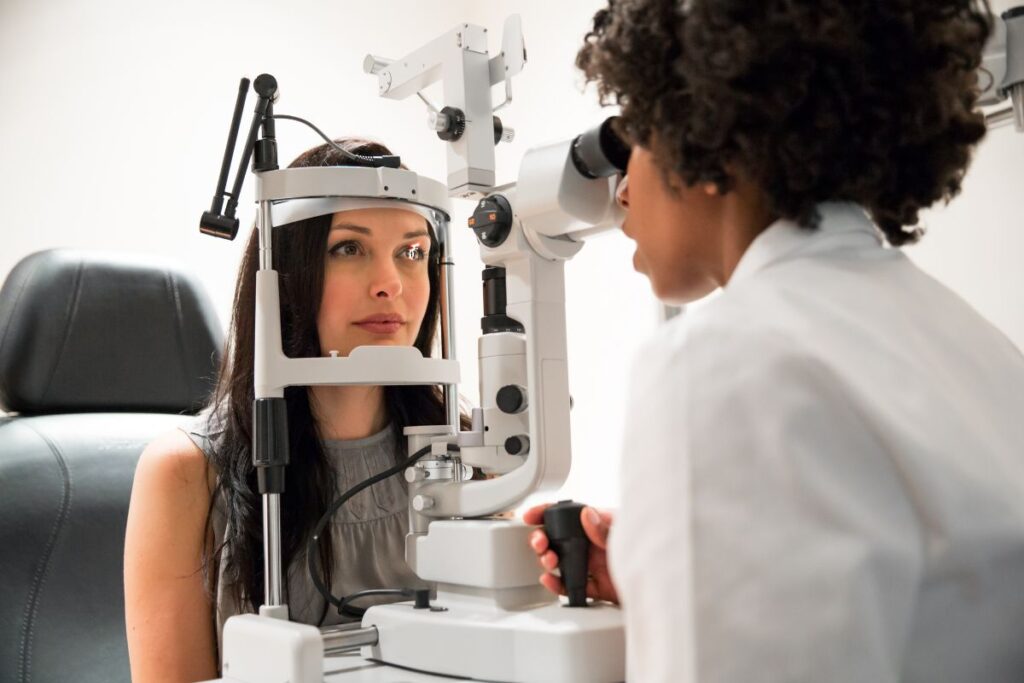PRK Eye Surgery Corrects a Wide Range of Vision Problems
PRK eye surgery provides an excellent alternative treatment option for patients who have myopic, hyperopic, and astigmatic visual errors. PRK and LASIK are similar in many ways, as they are both advanced laser vision correction treatments. However, they do differ in some important ways.
Table of Contents
What Is PRK?
Photorefractive keratectomy, more commonly known as PRK, is a laser eye surgery that corrects vision problems such as nearsightedness, farsightedness and astigmatism.
During the procedure, an excimer laser is used to reshape the surface of the cornea, removing a thin layer to change the cornea’s focusing power in order to correct vision problems.
How Long Does It Take to Recover from PRK Eye Surgery?

Recent developments in technology have greatly shortened the PRK surgery recovery timeline and have made the procedure more comfortable.
After the PRK procedure is complete, your surgeon will place a contact lens “bandage” over the eye, which will be removed when the epithelium has healed a few days later.
In the week after your procedure, light sensitivity is common. You may feel some discomfort during this time, and vision may fluctuate. In about a week, you should be able to perform most day-to-day tasks, such as driving a car; however, it can take up to 6 months to achieve your best corrected vision.
You can expect to have several follow-up appointments in the weeks and months after your procedure to check the healing of your eyes and progress of your vision.
PRK vs LASIK

Like custom LASIK, PRK eye surgery not only corrects nearsightedness, farsightedness, and astigmatism, but also treats higher order aberrations that affect the quality of vision. Higher order aberrations may be associated with glare, halos, double vision, and difficulty seeing at night.
Because PRK does not involve the creation of a corneal flap as LASIK does, this treatment is preferred for many patients with specific corneal conditions or high-risk lifestyles such as law enforcement, aviation, military or martial arts.
Utilizing advanced Wavefront technology, the PRK procedure is tailored to the unique vision correction needs of each patient.
PRK Cost
One of the most common questions about this surgery is, what does PRK cost? The PRK surgery cost is on par with LASIK. Both are considered elective surgeries by most insurance companies and may not be covered by vision insurance.
At Berkeley Eye Center, we offer financing options (with approved credit) for our laser eye surgery patients. You can also use your Flex Spending Account or Health Savings Account to pay for the PRK procedure.
Client Reviews



Schedule A PRK Eye Surgery Consultation
So, is LASIK or PRK the best option for you? While it’s important to know as much as you can about both procedures, the right way to make this decision is with the help of an experienced eye surgeon. Which procedure is best for you depends on many variables that should be evaluated in consultation with an ophthalmologist.
Berkeley Eye Center understands that choosing your surgeon is probably the most important factor when considering laser vision correction. It would be our pleasure to determine whether LASIK or PRK would be the best customized treatment for you. Schedule your free PRK consultation today.

